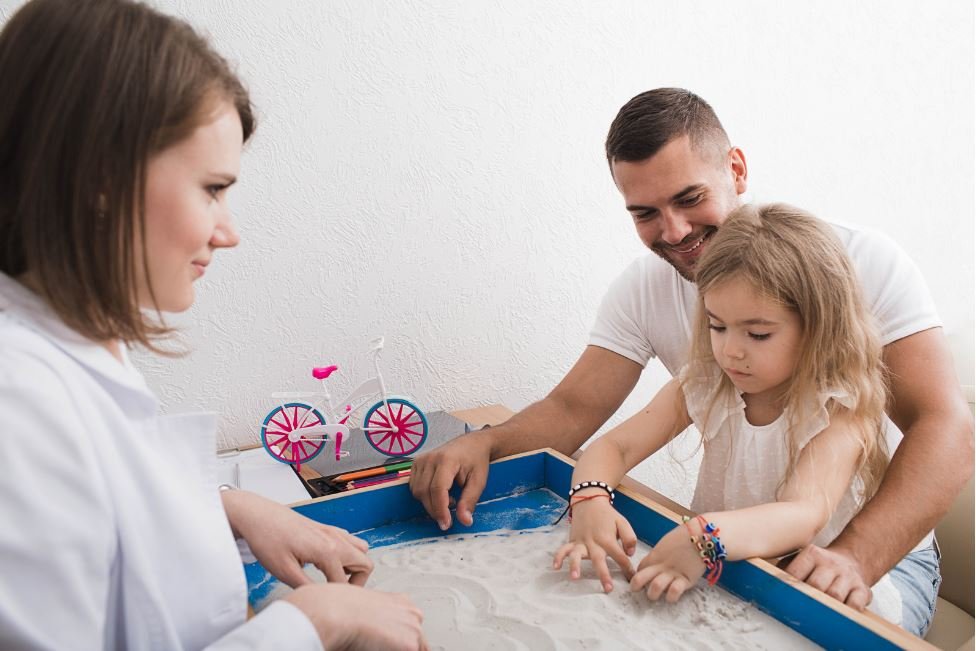As a parent, you naturally want the best for your child, ensuring they grow and develop healthily. Sometimes, however, children may exhibit signs that suggest they could benefit from additional support. Recognizing these signs early and seeking professional help can make a significant difference in your child’s development.
Read on, parents, as we explore some key indicators that your child might need pediatric therapy, focusing on common issues observed in Vancouver children.
12 Signs Your Child Needs Pediatric Therapy: Key Indicators for Parents
Physical Development and Motor Skills
Physical development plays a crucial role in your child’s ability to interact with the world around them. Delays in motor skills or other physical challenges can sometimes signal the need for pediatric therapy. Here are some important signs to monitor:
1. Delayed Milestones
Milestones are a common way to track a child’s physical development. If your child is not rolling over, sitting up, crawling, or walking within the expected age range, it could indicate a delay in gross motor skills. For example, most children walk between 9 and 15 months; if your child hasn’t taken their first steps by 18 months, it may be time to consult a therapist.
2. Coordination Issues
Does your child have trouble performing tasks that require coordination, like riding a tricycle, climbing stairs, or running without tripping frequently? These could be signs of difficulty with motor planning or balance, areas that pediatric therapy can help address.
3. Fine Motor Challenges
Fine motor skills involve smaller, more precise movements, such as holding a pencil, cutting with scissors, or buttoning a shirt. If your child struggles with these tasks, it may indicate a delay in fine motor development, often helped through pediatric occupational therapy.

Sensory Processing Issues
Children experience the world through their senses, but some may have difficulty processing sensory information correctly. Pediatric therapy can help children manage their sensory environment more effectively. Common sensory processing issues include:
4. Over-Sensitivity
Some children are highly sensitive to sensory input, reacting strongly to certain textures, sounds, or lights. If your child refuses to wear clothes with tags, covers their ears at loud noises, or avoids messy play, these could be signs of sensory over-responsiveness.
5. Under-Sensitivity
On the flip side, under-sensitive children might seek out intense sensory experiences. They may constantly touch objects, put non-food items in their mouth, or seem unaware of physical discomfort like cuts or bruises. Pediatric therapy can help regulate these sensory needs.
6. Mixed Sensitivity
Some children display a combination of over- and under-sensitivity to different stimuli, reacting strongly to some while seeking more of others. This mix can make it difficult for parents to understand their child’s needs, but an experienced therapist can help identify and manage these sensitivities.
Communication and Language Delays
Effective communication is essential for your child’s success in school, relationships, and everyday life. If your child shows signs of communication delays, pediatric therapy can help them improve their language and social interaction skills.
7. Limited Vocabulary
If your child has a smaller vocabulary than their peers, struggles to form sentences, or frequently cannot find the right words, it could be a sign of a language delay. Children typically have a vocabulary explosion around 18-24 months; delays in this period may warrant evaluation.
8. Articulation Issues
Articulation issues make it difficult for others to understand your child. If your child has trouble pronouncing certain sounds or consistently slurs words, speech therapy can help improve their clarity.
9. Comprehension Challenges
Does your child struggle to understand and follow directions or answer simple questions? Difficulty with language comprehension can be another indicator of the need for pediatric therapy.
Social and Emotional Development
A child’s ability to form relationships, manage emotions, and understand social cues is foundational for their well-being. Issues in social and emotional development can signal the need for pediatric therapy.
10. Difficulty with Social Interactions
Children who struggle to make friends, engage in group play, or read social cues may have challenges with social skills. These difficulties can lead to isolation or frustration in social settings, which pediatric therapy can help alleviate.
11. Emotional Regulation Issues
Frequent tantrums, excessive crying, or difficulty calming down when upset are signs your child may have trouble regulating their emotions. Pediatric therapy, particularly occupational or behavioral therapy, can teach children strategies to manage their emotional responses.
12. Anxiety and Withdrawal
If your child exhibits signs of anxiety, such as clinginess, fearfulness, or withdrawing from social situations, it may be time to consult a therapist. Early intervention can help prevent long-term issues related to anxiety.
Costs and Access to Pediatric Therapy in Vancouver
When considering pediatric therapy, understanding the financial aspect is important. In Vancouver, therapy sessions typically cost between $100 to $150 per session. Many extended health plans offer partial or full coverage, so it’s advisable to check with your insurance provider. Additionally, some clinics provide sliding scale fees based on family income, making therapy more accessible to those who need it.
When to Call a Professional
If you notice any of these signs in your child, seeking professional help is a crucial next step. Early intervention can significantly impact your child’s development, and the sooner you act, the more effective therapy can be. Here are the steps you can take:
1. Consult with Your Pediatrician
Your child’s pediatrician is often the first point of contact. They can assess your concerns, conduct preliminary evaluations, and refer you to a pediatric therapist if necessary.
2. Seek an Occupational Therapist
Occupational therapists specialize in helping children with physical, sensory, and social-emotional challenges. They can perform a comprehensive evaluation and create a personalized therapy plan tailored to your child’s specific needs.
3. Access Local Resources
Vancouver is home to numerous pediatric therapy centers staffed by experienced professionals dedicated to helping children thrive. Research local clinics and speak with other parents to find the best fit for your child’s needs.
Quick Statistics on Pediatric Therapy
- Prevalence: Approximately 15% of children aged 3-17 years have one or more developmental disabilities.
- Early Intervention Impact: Children who receive early intervention services are more likely to achieve better long-term outcomes.
- Local Support: Vancouver boasts a variety of therapy centers with highly qualified professionals ready to support your child’s growth and development.
Recognizing the signs that your child might need pediatric therapy and seeking professional help early on can make a significant difference in their overall development. By taking action sooner rather than later, you ensure that your child gets the support they need to reach their full potential.
Quick Statistics on Pediatric Therapy
- Prevalence: About 15% of children aged 3-17 years have one or more developmental disabilities.
- Early Intervention Impact: Children who receive early intervention services are more likely to achieve better long-term outcomes.
- Local Support: Vancouver has numerous therapy centers with highly qualified professionals dedicated to helping children thrive.
Recognizing the signs that your child needs pediatric therapy and seeking professional help can make a significant difference in their development. By addressing these issues early, you can ensure your child has the support they need to reach their full potential.




